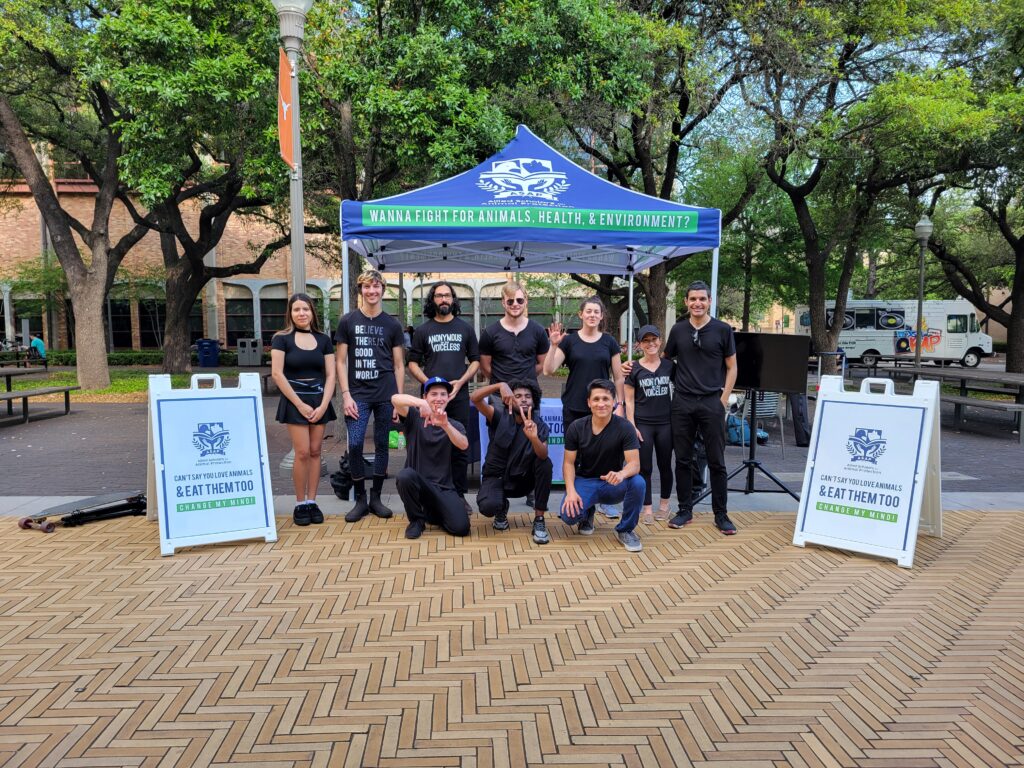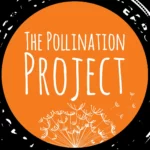Over 1.9 million people are expected to be diagnosed with cancer in the USA in 2023, American Cancer Society.
“Statistically, logically, rationally and morally there is nothing more impactful than dedicating my life to veganism. There is nothing more impactful that anyone can do with their lives,” Dr. Faraz Hasini, Founder and CEO of Allied Scholars for Animal Protection.
Nowadays new treatments and technology have allowed us to achieve a better opportunity at preserving or regaining our health, but still one of the scariest words a person can hear is cancer. To think about the implications of having to fight this disease can be frightening for anyone. Unfortunately, cancer is expected to cause approximately 609,820 deaths in 2023 only in the USA, according to a report by the American Cancer Society. In fact, the report notes that cancer is actually the second cause of death in the USA, only preceded by heart disease.
Yet, the American Cancer Society suggests that some types of cancer can actually be prevented. For example, cancer caused by tobacco or unhealthy behaviors which include 42% of recently diagnosed cancers excluding non-melanoma skin cancer, 19% of cancers related to smoking, 18% of cancers linked to a combination of overweight, poor nutrition, inactivity and alcohol consumption, as well as many of the 5 million of skin cancers diagnosed each year.
For Dr. Faraz Hasini the prevention of several types of cancer can be directly related to the food we put on our table.
A Scientist With a Heart of Gold
 Dr. Faraz Hasini was born in Tehran, Iran. He is an only child and he has loved animals for as long as he can remember. As a man of science, he has a bachelor’s degree in Chemical Engineering with a concentration in biotechnology and process design as well as a MSc. in Biotechnology from Texas Tech University Health Science Cancer Center with a concentration in cancer research. In addition, he has a Doctorate in Biomedical Sciences with a focus on cell physiology and molecular biophysics from TTUHSC. However, he is also a philanthropist and a man of profound empathy towards all living beings.
Dr. Faraz Hasini was born in Tehran, Iran. He is an only child and he has loved animals for as long as he can remember. As a man of science, he has a bachelor’s degree in Chemical Engineering with a concentration in biotechnology and process design as well as a MSc. in Biotechnology from Texas Tech University Health Science Cancer Center with a concentration in cancer research. In addition, he has a Doctorate in Biomedical Sciences with a focus on cell physiology and molecular biophysics from TTUHSC. However, he is also a philanthropist and a man of profound empathy towards all living beings.
Faraz loves music; he plays the piano, organ, bagpipes, accordeon, harmonica, ocarina and the flute. When he was just a teenager, he watched the movie Patch Adams, about an American physician and social activist, and was inspired by the story of compassion and commitment to others.
“Since I started college I asked myself how I could have a bigger impact in the world,” Faraz recalls. “A group called Mofid contacted me to play music and volunteer with them. We used to go to hospitals every Friday to play music for children in Iran but it was really hard not to be impacted by the children’s suffering. Every time I would come home I would literally cry. There was no guarantee that these children would be there next time we returned, it was impossible not to get attached to them, and I really wanted to do something better for them.”
Those visits to the hospital are what inspired Faraz to ask himself what he could do to alleviate the children’s suffering. This was his motivation to pursue biomedical research and more specifically cancer research in graduate school.
Advocating for Animals
For Faraz, animal well being is as important as human well-being. He remembers being involved in numerous campaigns, rallies and protests that aimed to prevent animal suffering by creating awareness in his community.
“I have always loved animals,” remembers Faraz. “I was running some campaigns in my university in Iran to save fish because there is a Persian tradition where people buy live goldfish on New Year’s and keep them as pets, but millions of them die every year because people don’t take care of them. So I tried to encourage people not to buy them. I remember that I was in Germany and I asked a friend to help me design a poster to encourage people not to buy goldfish, and she said: ‘You don’t make any sense because you literally eat animals. You can’t eat other animals and just try to save these goldfish.’”
At first, Faraz resented his friend’s comment but a few months later he became vegetarian and after learning about the cruelty behind egg and dairy businesses, he went vegan.
“I never thought I could go vegan because I really liked meat. But I did it. I was about 23 years old,” says Faraz.
But, besides recognizing animal rights and avoiding their suffering through veganism, Faraz found a crucial relationship between what we eat and the possibility of preventing some types of cancer and other major causes of death.
What Doctors Don’t Talk About
The path Faraz had followed in his academic education as well as his volunteer years as a clinical clown and his animal advocacy led him to veganism and allowed him to have a new perspective on the crucial fact that – according to him – could help prevent some types of cancer.
“When I became vegan, my perspective changed and I also realized that many of the types of cancers are caused by animal consumption to begin with,” says Faraz. “I realized that 40% of cancers are preventable and we are not even talking about it. No one is talking about how diet is impacting human health and disease. This is something doctors don’t talk about. The fact that I got a graduate degree in cancer research and no one ever mentioned that tells you everything that is wrong with the way we look at medicine.”
“While major health organizations like Mayo Clinic, Kaiser, or the Academy of Nutrition and Dietetics endorse plant-based diets for all stages of life and mention their benefits in reducing the risk of heart diseases, obesity, diabetes, cancer, and other chronic diseases, they warn people about meat consumption. Major medical and cancer organizations such as World Health Organization (WHO), American Cancer Society, MD Anderson Cancer Center, Cancer Research UK, and many more all say the less meat you eat the better. WHO classifies processed and red meat as group1 and 2A carcinogenic. This was never mentioned throughout my over a decade of biomedical research in academia and industry,” explains Faraz.
That is why Faraz decided to found Allied Scholars for Animal Protection (ASAP), to reach out to students at universities all around the USA and provide them with crucial information and inspire them to become vegan and more active vegan advocates.
“At the organization, we have three pillars. The first pillar is outreach. We do debates, events and more. We want to encourage new vegans,” says Faraz. “Our second pillar is we want to inspire young people to be active in veganism and implement those values in their careers and our third pillar is to prepare students to make a sustainable change once they join the workforce, creating policies that promote veganism”.

For the first time, ASAP is organizing campus animal advocacy in a unified and orchestrated manner, providing students with on-the-ground support and training. One of the major ASAP’s goals is to ensure vegan groups on campuses don’t become inactive after a few semesters, and that students organize effective outreach events to maximize visibility on campus.
“I want every single student in each university to come across vegans and veganism. I want every medical student to receive at least one lecture on plant-based nutrition and preventive medicine every year. And I want to inspire vegans to remember the urgency of this cause, get active, and dedicate their careers and lives to promoting it. I want to inspire the next generation of influential leaders with animal liberation values,” says Faraz.
ASAP’s recent campus tour at Harvard University, MIT, Brown University, Columbia University, Cornell University, University of Wisconsin, University of Chicago, and Northeastern University consisted of days of activism and outreach on each campus, in addition to lectures about health, the environment, and ethics aspects of veganism by Faraz. Their thought-provoking events such as Elwood’s dog meat were featured multiple times by university newspapers, and as Brown University’s newspaper put it “Allied Scholars for Animal Protection aims to start conversation, spark movement across college campuses”.
A Heartivist Success
In 2022, Faraz received a seed fund from The Pollination Project to create outreach events at colleges to promote veganism; this was the first grant that Allied Scholars for Animal Protection ever received.
“Because of your grant and what we did at the University of Texas at Austin there is now an entire vegan menu in the university,” says Faraz. “We are covering a lot of students in Texas. That seed grant really helped us to take off and scale up.”
Currently, Allied Scholars for Animal Protection has 10 people working in the project, some full-time and other part-time; and they have promoted veganism with students at over 12 USA universities including Harvard, MIT, Columbia, Cornell, Brown, the University of Wisconsin, the University of Chicago, and more.
“Every time I have a talk at a university, a lot of people tell me through email they have become vegan or are inspired to use their careers for veganism,” says Faraz. “Our goal is to be in the top 100 universities and be able to reach out to a couple of million students in the USA and internationally.”
Faraz works as a senior scientist at the Good Food Institute and has received numerous awards and recognitions for his scientific and animal advocacy contributions, including an award from the National Institutes of Health. This young scientist has certainly answered the most pressing question he has always asked himself: What is the biggest issue I can solve with my life if my time and my efforts are limited? And, without a doubt he has impacted the world and left an indelible mark of kindness and hope for all living beings.
Join Us
If you are inspired by this work and have an idea for a project that addresses an issue that you are passionate about, we’d like to invite you to submit an application and together we will build a better, more compassionate future!
If you would like to support the work of more changemakers like this around the world, please visit our donation page and be a part of the change today!


![Monica Wang, a graduate of Yantai University in China, founded Xiaobu Vegan to promote veganism in her homeland. Having grown up in Guangxi with little early connection to animals, her perspective changed after moving to Shanghai and working at Plant Based Consulting. Her vegan journey began alongside rescuing two cats and a Japanese Akita, Meng Meng.
Xiaobu Vegan, established in 2020, uses educational videos, restaurant collaborations, and initiatives like the "Vegan Challenge" to advocate for plant-based diets. Supported by The Pollination Project, the organization aims to influence dietary habits and encourage compassion through its growing platform.
Read more on our website👇
[https://thepollinationproject.org/would-you-eat-your-best-friend]
#xbvegan #vegan #veganchina #animaladvocacy #animalrights #compassion #china #heartivism @animalchangemakers](https://thepollinationproject.org/wp-content/plugins/instagram-feed-pro/img/placeholder.png)